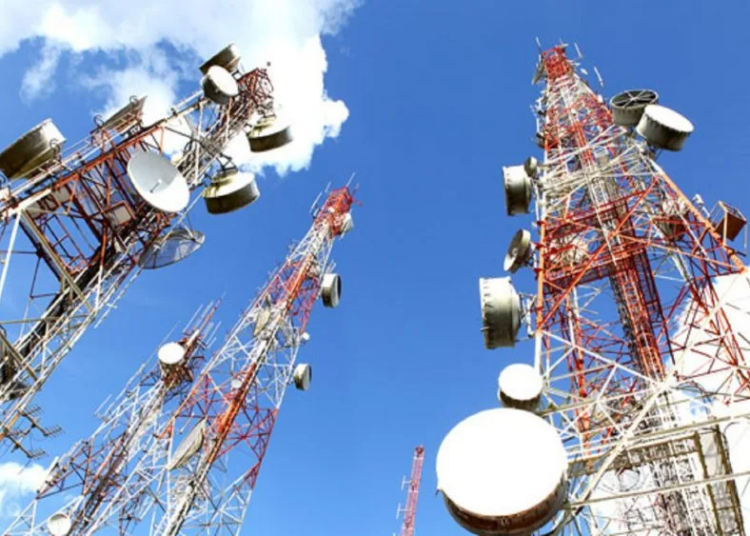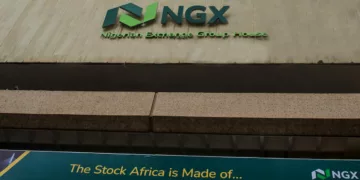Major obstacles to telecom infrastructure development have been issues within the purview of sub-national governments, including right-of-way, multiple taxation, and infrastructure resilience, even as telecoms operators have called on states to reduce right-of-way charges and eliminate multiple taxation to facilitate broadband penetration target of 70 per cent by 2027.
The World Bank has highlighted the profound impact of broadband on economic development, particularly in developing nations. According to its report (WB 2016), a 10 per cent increase in fixed broadband penetration can boost GDP growth by up to 1.38 per cent in developing countries thereby speeding up the economy.
To this end, the Nigerian government developed the Nigerian National Broadband Plan (NNBP) 2020-2025 with the aim of enhancing the country’s digital infrastructure by providing widespread broadband access. It promises minimum data download speeds of 25Mbps in urban areas and 10Mbps in rural areas, aiming for a 70 per cent broadband penetration rate for eligible individuals at a cost of no more than N390 per 1GB by 2025.
As of Q1 2024, the NNBP’s progress includes 3G population coverage of 89.42 per cent and 4G at 84.19 per cent, while targeting 90 per cent 4G coverage by 2025. On broadband speed, urban areas coverage stood at 22.03 Mbps, while targeting 25 Mbps (urban areas) and rural areas coverage of 10 Mbps by 2025. On fibre reach, the country has 79,212.46 km fibre reach with many overlaps, while targeting 120,000 km non-overlapping. Broadband penetration stood at 43.53 per cent of eligible individuals, even as the federal government has targeted 70 per cent by 2025.
To achieve these targets and fully realise the benefits of digitization, critical stakeholders who convened at the strategic stakeholders’ meeting with the 36 states commissioners, including FCT, permanent secretaries and heads of ICT Agencies, organised by the Association of Telecommunications Companies of Nigeria (ATCON), in Abuja, therefore tasked states government to ease regulatory burdens and drive policies that are investor-friendly for the telecommunications/ICT sector.
The executive vice chairman/chief executive officer, Nigerian Communications Commission (NCC), Dr. Aminu Maida, said connectivity and broadband are the bedrock of digitization and technical efficiency, driving economic growth, improving public service delivery, enhancing agricultural productivity, advancing infrastructure development, promoting inclusivity, and strengthening security and governance.
With the World Bank’s findings on the critical role of broadband on economic development, Maida, who was represented by the assistant director, Digital Economy Department, NCC, Engr. Yahaya Hamisu Abubakar, therefore called on states to prioritise broadband infrastructure, implement investor-friendly policies, and eliminate regulatory bottlenecks.
“While we all have our parts to play, we cannot achieve this vision alone. We need a collaborative effort from all stakeholders – state governments and industry players. To the state governments, we offer partnership and technical expertise through various programs such as the USPF, National Broadband Alliance for Nigeria, Project 774 LG connectivity, and so much more. To the industry, let’s leverage innovation and investment in solutions while embracing efficiency to reach the underserved. Each state can, in its unique way, propel development for its state and the nation at large. It, however, starts with effective collaboration,” he stated.
In the same vein, the president, ATCON, Tony Izuagbe Emoekpere, said despite the promising prospects of broadband and connectivity, there are numerous challenges that continue to impede the deployment of telecom network infrastructure. “Insecurity remains a major concern, particularly the activities of non-state actors engaging in criminal activities such as kidnapping, banditry, and terrorism. These threats are most prevalent in the northern and southeastern regions of the country, posing significant risks to both local and expatriate personnel working on telecom projects.
“Additionally, the exorbitant fees and bureaucratic hurdles associated with obtaining right of way permits from some state governments continue to be a major barrier to infrastructure development. The lack of proper road infrastructure in rural areas further complicates efforts to extend telecom services to underserved and remote communities,” Emoekpere lamented.
Nevertheless, the ATCON president assured that operators are committed to working collaboratively with all stakeholders to overcome these challenges, adding that, “We believe that through concerted efforts and strategic partnerships, we can create a more favourable environment for the expansion of telecom infrastructure and the realisation of our collective goals.”
Among the States represented at the meeting were Enugu, Cross River, Taraba, Adamawa, Anambra, Nasarawa, Kogi, and Ogun. The states expressed a strong desire for Telecom operators to engage and interact more with sub-national governments for a better understanding of their investments and operations in their host communities. They also tasked operators to obtain permits, in accordance with the Communications Act of 2003, before investing in or deploying telecoms infrastructure in the States to avoid conflicts with constituted authorities.











